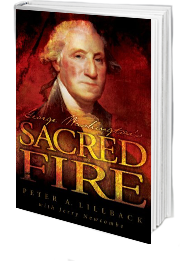Marx Was Wrong About Workers
Labor Day Unites Work, Rest and the Protestant Ethic
Work often requires blood, sweat and tears. But the paradox in the West is that work also ameliorates blood, sweat and tears. This paradox is the essence of the Protestant Work Ethic that most would agree helped to shape the fabric of the American way of life. It is the confounding intangible biblical philosophy of work that Communism founder Karl Marx could not grasp and Alexis de Tocqueville called “productive industry” – a set of virtues that celebrated work, self-reliance, integrity, modesty and thrift.
But this “productive industry” evolved over time. The story of Labor Day in America, as we now celebrate it, begins with the working conditions that many faced in the wake of the Industrial Revolution in the late 1800s. The American worker, the manual laborers, the agriculturalists, the factory workers, construction workers, the people that made a new American nation possible, often labored 12-hour days, seven days a week, to eke out a basic living. Many, including young children endured unsafe working conditions with inadequate safety, fresh air, sanitation and rest-breaks.
With the Industrial Revolution, labor unions began to appear. Strikes were organized to protest the inequities of long difficult hours of labor for little pay. In 1886, violence broke out in Chicago at the Haymarket Riot where laborers and policemen were killed. In New York City, on September 5, 1882, 10,000 workers left their jobs for the day to march from City Hall to Union Square in New York City, for the first American Labor Day parade.
The clash between labor and management in the industrialized West was sharp. Karl Marx, the founder of communism, predicted there would be a universal revolution that would pit the workers (the proletariat) and the owners (the bourgeoisie) against one another. His motto was “Workers of the world unite!” But that workers’ revolution never materialized in the industrial west.
While the story of the growth of the American economy and work force is complex, imperfect, and ever evolving, the seeds of “productive industry” had been sewn early by what Tocqueville called “the first of America’s political institutions”, namely religion.
Protestants had long realized that work was not merely beneficial and practical but that it was also godly. The Fourth Commandment that calls for a weekly Sabbath rest also commands six days of labor. In other words, work and worship were both sacred in God’s economy. Hence, the daily calling of honoring God with our labors became known as vocation. Every task large or small, exhausting or exhilarating, was a potential expression of worship.
Hard and excellent work was pursued and embraced because it showed that one loved God and loved his neighbor as well. Owners, perhaps reluctantly at first, realized that their love for their neighbor was expressed not by seeking profit alone but by also rewarding their workforce with just wages and better working conditions. This was a mutual fulfillment of the First and Second Great Commandments as taught by Scripture in the Ten Commandments and explained by Jesus. Protestants in particular, but also those in the broader Judeo-Christian tradition, strove to develop a productive work ethic that conveyed love to their neighbors and faith in God.
Ultimately, the industrial revolution turned out to be a blessing to both investors and laborers. Through negotiations between owners and workers, laborers were able to eat well, buy houses, own cars, take vacations, send kids to college, and gasp!, even become owners of industries through mutual funds, retirement accounts and 401k’s.
Thus, underneath the raw power of manual labor that moves mountains, builds bridges, loads trucks and trains, constructs immense machines and tears down obstacles—the things that facilitate our American way of life—is a belief that work itself is not inherently evil, but a blessing. Indeed, labor is not only the spring that waters the American Dream, it is an essential expression of it, as many have found that labor not only provides the necessities of life but also offers purpose and significance.
As such, it is appropriate to celebrate the sacrifice of toil, fatigue and frustrations, by all those who labor with a day of rest! But also consider as you rest that the success of America’s labor force honored this special day, at least in my estimation, has more to do with Protestantism’s belief in Jesus Christ than Communism’s commitment to Karl Marx.
